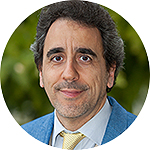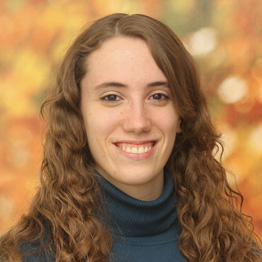Directors:
José Ignacio Murillo and Juan Fernando Sellés
Home:
September 2021
Registration:
Until 31 July (reduced price)
From 1 August to 15 August (general price)
Charge professor:
Equivalence to 8 ECTS credit
presentation
The online course on the philosophy of Leonardo Polo is designed for people who have an interest in this thinker but who do not have a guide to begin their study, or who want to progress in the knowledge of his thought. Given that the thought of this contemporary Spanish author is immense, we offer an introductory course that allows you to discover in a general way his contributions and the innovation that they represent for contemporary philosophy.
Leonardo Polo's thought not only proposes solutions to philosophical aporias of different historical moments: that is to say, it dialogues with modernity, offering answers to its interests, but also connects it with classical and medieval thought, which it expands. In this way, it offers a rigorous and hopeful alternative to current philosophy, which is somewhat in crisis because it has serious difficulties in posing the great theoretical questions.
Polo's Philosophy also offers a theoretical proposal that, without ceasing to be philosophical, gathers and deploys Christian inspiration, effectively showing the harmony between Christian faith and intellectual research, thus recovering the value of philosophical research for the appropriation of faith by the believer and for its realization in the internship
Academic leaders (Course Directors)
 |
José Ignacio Murillo Associate Professor School of Humanities and Social Sciences |
 |
Juan Fernando Sellés Associate Professor School of Humanities and Social Sciences |
| coordinator professor | |
 |
Juan Pablo Puy Project management expert. |
| Tutor | |
 |
Ana Bastidas Researcher department of Philosophy School of Humanities and Social Sciences |
Start: Monday 30 August 2021
End: Monday 20 December 2021
submission of the final work: 31 January 2022
faculty and program
|
Module |
Title |
professor Responsible |
|
1 |
- Presentation of the course and introduction to Polo's philosophy. - Introduction to the theory of knowledge, an axiomatic of mental presence. |
Ignacio Falgueras Salinas Full Professor Emeritus of History of Modern and Contemporary Philosophy , University of Málaga. |
|
2 |
- Metaphysics as the intellection of first principles. |
Fernando Haya Honorary Professor, University of Malaga |
|
3 |
- The knowledge of physical causality. |
José Ignacio Murillo Senior Associate Professor. School of Philosophy and Letters, University of Navarra. |
|
4 |
- Science and philosophy in Leonardo Polo. |
Juan José Sanguineti Full Professor Emeritus of Philosophy from knowledge at School of Philosophy of the Pontifical University of the Holy Cross, Rome. |
|
- Intermediate session |
Juan A. García González Full Professor of Philosophy of the School of Philosophy and Letters of the University of Malaga. |
|
|
5 |
- Anthropology I: Intimacy and Personal Transcendentals |
Juan Fernando Sellés Senior Associate Professor. School of Philosophy and Letters, University of Navarra. |
|
6 |
- Anthropology II: The manifestation of the person, the self. - Anthropology III: Human manifestations. |
Juan José Padial Senior Associate Professor of University, department of Philosophy of the University of Malaga. |
|
7 |
- Anthropology IV: Psychology. |
Gonzalo Alonso Bastarreche Professor teaching assistant Doctor School of Education and Psychology, University of Navarra. |
|
8 |
- Ethics |
Urbano Ferrer Full Professor by Philosophy Moral, University of Murcia. |
Methodology
The methodology is the closest to face-to-face that can be achieved in the framework of an online course. Throughout the course, the teachers will hold a total of 20 live Zoom sessions with the students (synchronous online classes).
The programme is structured in 8 units or modules. The content of each module is scheduled to be taken over two weeks. Each module consists of:
-
class pre-recorded lecture - approximately 1 hour long - to introduce the key points of each module, and at position by the lecturer in charge of the module.
-
PDFs, for reading and individual study, with a selection of texts by Polo on the contents of each module and explanatory texts by the teacher.
-
Questions from students via a forum.
-
Two synchronous classes (by Zoom live), each lasting approximately one hour and average , in which the teacher will dialogue with the students, clarifying the questions posed in the forum of each module.
-
Multiple choice test on the notions of the module.
In addition, throughout the course:
-
In between, there will be four other synchronous classes (live on Zoom) where global aspects of the Course and its subject will be discussed. They will be at position by the directors of the Course and Juan A. García, Full Professor of Philosophy of the School of Philosophy and Letters of the University of Málaga.
-
As part of the final evaluation each student will have to write a short article on one of the aspects of the course.
This course aims, therefore, at acquiring a global understanding of the main areas that Polo studied and on which he made original contributions: Anthropology, Metaphysics, Theory of knowledge, Ethics and Human Sciences.
And to understand Leonardo Polo's contributions, the fruit of his intellectual search, about the truth of man and his relationship with God, with others and with the world.
This will make it possible to identify and order other areas of knowledge from the broad horizon provided by Polo's thinking.
It will encourage critical thinking, introducing a demanding and rigorous form of philosophical enquiry.
skill Finally, this course is also aimed at acquiring a research skills that will enable the writing of academic articles and will provide the instructions to undertake more extensive research.
Admission and enrolment
Who can take this course?
-
You must have studied or be studying a university degree, preferably (not essential) in the humanities ( Degree ).
-
Proficiency in Spanish language , as the necessary works by Polo are only available in Spanish.
-
Justification of your choice of this course through the writing of a one-page (about 500 words) report in which you explain how you got to know Polo's work and show your interest in his work in an argumentative way.
-
Devote 10 to 15 hours per week to the tasks of the Course and, above all, to its study.
Request for information
If you would like further information about the course, you can request it from the secretariat of the University of Navarra School of Humanities and Social Sciences : secretariaffyl@unav.es
Registration deadlines and enrollment
From 1 July to 15 August 2021 (until fill in places in order of registration).
The steps to formalise enrollment in the course are as follows:
1.- apply for the admission, filling in the "Application for Admission" form .
2.- Wait for a response to your request.
3.- In case of being admitted: formalise the payment. You will receive an email from secretariaffyl@unav.es with the link to formalise the payment.
4.- Send by e-mail to secretariaffyl@unav.es the following documentation:
- Copy of National Identity Card or Passport
- Recent photo
- certificate for payment
Course start: Monday 30 August 2021
The enrollment will not be considered formalised until payment has been made and documentation has been sent.
No. of places offered
50 students
Price
Total price: 720 €.
Exemptions or allowances
|
enrollment normal course |
720 € |
|
20% discount for early registration enrollment or for old student UNAV |
576 € |
|
enrollment reduced subject "B" for special personal situations to be assessed by teachers |
363 € |
|
Reduced enrolment subject "C" for UNAV employees and assimilated employees |
180 € |
The "Advanced Training Course in the Philosophy of Leonardo Polo" is a Degree of the University of Navarra. It is included in the so-called "Advanced Training Courses".
Students who pass with a grade of more than 5 will receive an Academic certificate given by the Secretariat of the School of Humanities and Social Sciences.
The certified load professor shall be 8 ECTS credit.
The validation of the 8 ECTS credit of the course by ECTS credit corresponding to the official degrees given by the University of Navarra is not automatic. It must be requested by each student through written request in their own centre or School.
The School of Humanities and Social Sciences will validate up to a maximum of 2 ECTS credit for this course as "Cultural Activities Office".
Contact
Patricia Carnero Álvarez
pcarnero@unav.es
Central Building
31009 Pamplona, Spain
+ 34 948 42 56 00
Extension: 802761
